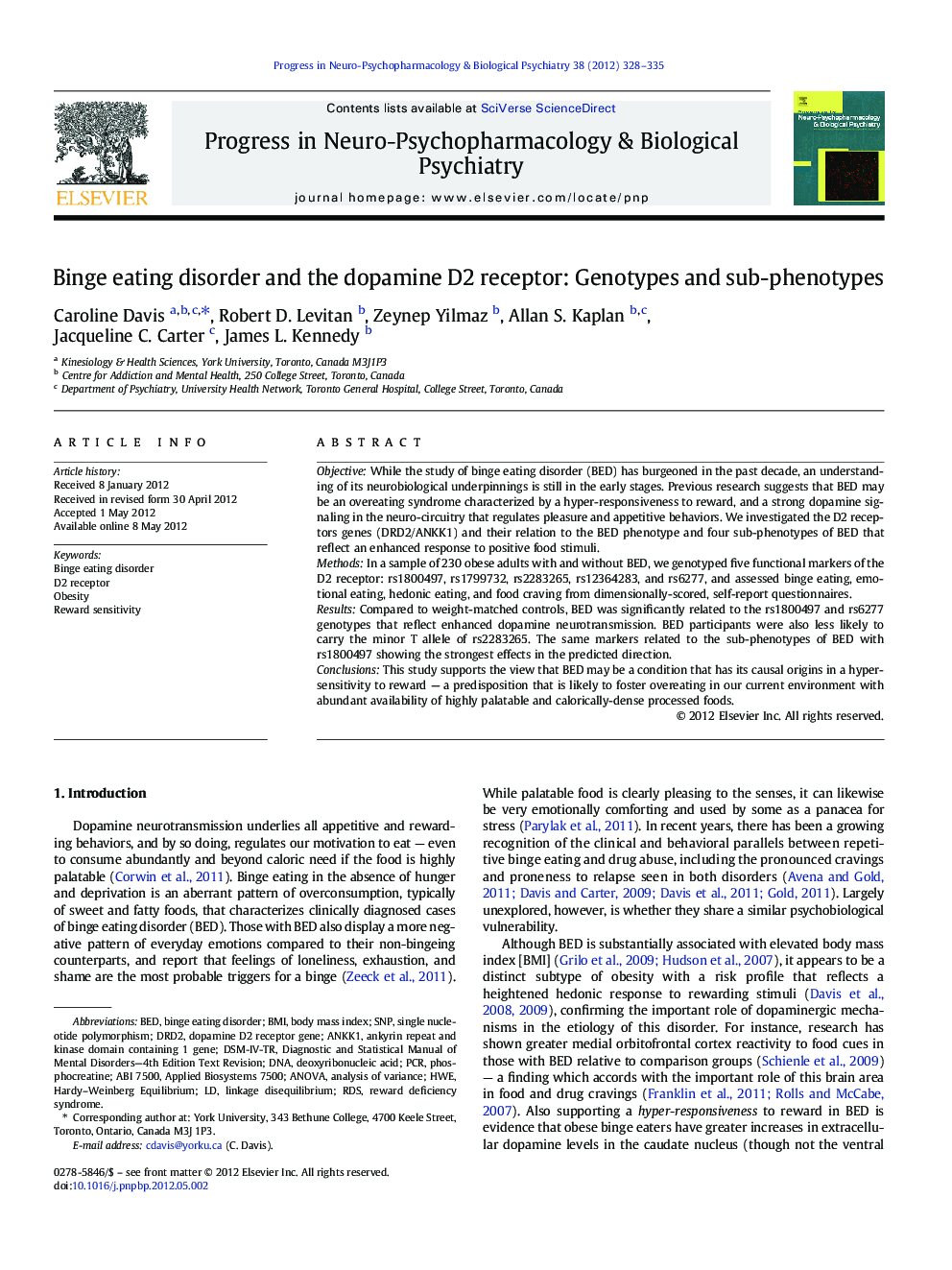| کد مقاله | کد نشریه | سال انتشار | مقاله انگلیسی | نسخه تمام متن |
|---|---|---|---|---|
| 5845083 | 1128040 | 2012 | 8 صفحه PDF | دانلود رایگان |

ObjectiveWhile the study of binge eating disorder (BED) has burgeoned in the past decade, an understanding of its neurobiological underpinnings is still in the early stages. Previous research suggests that BED may be an overeating syndrome characterized by a hyper-responsiveness to reward, and a strong dopamine signaling in the neuro-circuitry that regulates pleasure and appetitive behaviors. We investigated the D2 receptors genes (DRD2/ANKK1) and their relation to the BED phenotype and four sub-phenotypes of BED that reflect an enhanced response to positive food stimuli.MethodsIn a sample of 230 obese adults with and without BED, we genotyped five functional markers of the D2 receptor: rs1800497, rs1799732, rs2283265, rs12364283, and rs6277, and assessed binge eating, emotional eating, hedonic eating, and food craving from dimensionally-scored, self-report questionnaires.ResultsCompared to weight-matched controls, BED was significantly related to the rs1800497 and rs6277 genotypes that reflect enhanced dopamine neurotransmission. BED participants were also less likely to carry the minor T allele of rs2283265. The same markers related to the sub-phenotypes of BED with rs1800497 showing the strongest effects in the predicted direction.ConclusionsThis study supports the view that BED may be a condition that has its causal origins in a hypersensitivity to reward - a predisposition that is likely to foster overeating in our current environment with abundant availability of highly palatable and calorically-dense processed foods.
⺠Three functional D2 markers indicate enhanced dopamine signaling in binge eating disorder. ⺠BED sub-phenotypes also linked to reward sensitivity. ⺠Binge eating, hedonic eating, emotional eating, and food cravings linked to dopamine regulation.
Journal: Progress in Neuro-Psychopharmacology and Biological Psychiatry - Volume 38, Issue 2, 7 August 2012, Pages 328-335